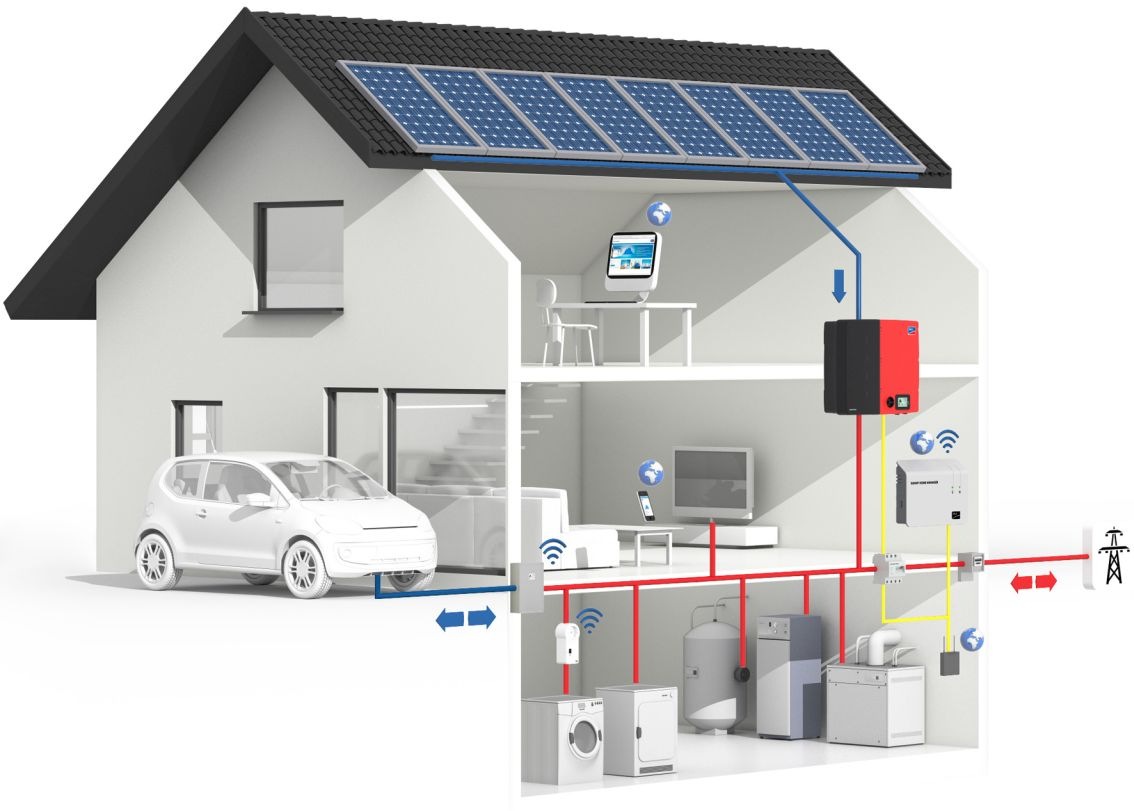Solar panel or heat pump? Both can increase your home's energy efficiency, reduce your carbon footprint and offer significant savings on your energy bills.
Heat pumps use electricity to extract heat from the air and pump it into your home. This heat energy can be used to heat your water supply and heat your home.
Heat pumps produce so much heat energy that they can dramatically reduce your dependence on the energy supplier and save you money on your energy bills.
Subscribe to Kiplinger's Personal Finance
Be a smarter and better informed investor.
Save up to 74%
Sign up for Kiplinger's free e-newsletter
Profit and grow with the best Kiplinger expert advice on investing, taxes, retirement, personal finance and more, delivered straight to your email.
Profit and grow with the best Kiplinger expert advice delivered straight to your email.
At the same time, solar panels generate electricity that can be used to power all of your home's electrical systems.
With the passage of the Reduced Inflation Act, Americans now have generous tax credits to reduce the cost of these energy-efficient home renovations.
Below, our friends at Money Edit put heat pumps and solar panels to the test in a head-to-head test.
But first, check out our other articles on saving energy at home, including stoves vs fans, electric heating vs radiators, wood stoves vs central heating, fan heaters vs oil heating, dishwashers vs hand washing, and check out our energy savings account.
Advantages of heat pumps
- Heat pumps do not emit carbon dioxide, nitrogen dioxide or particulate matter . They can help improve the air quality inside and outside your home.
- Heat pumps are much more efficient than gas boilers , producing three or four times more energy than they use.
- Heat pumps are reliable , require little maintenance and can last 20 years or more before they need to be replaced.
- The Inflation Relief Act provides a $2,000 tax credit for the installation of electric or natural gas heat pump water heaters, electric or natural gas heat pumps, and biomass furnaces and boilers .
Disadvantages of heat pumps
Unfortunately, heat pumps have several disadvantages.
- According to Forbes , the cost of an air source heat pump ranges from $2,500 to $10,000, with an average cost of $5,500 . Even with the $2,000 state tax credit, this system can still have a significant upfront cost before the energy savings are realized over the life of the heat pump.
- Heat pumps consume electricity and are therefore expensive . Remember that electricity costs three to four times more per unit than gas, so energy bills can actually rise after you switch off the boiler.
- Heat pumps only generate heat and cannot generate electricity, so they can only provide electricity for certain systems in your home.
- Heat pumps do not heat the house as quickly as gas boilers . Most importantly, a naturally cold apartment heats up much more slowly.
- Heat pumps can be difficult to install in homes with combination boilers that require space for a hot water tank .
- The heat pump fan can cause noise, although the manufacturer has tried to make it quieter.
- Some houses do not have enough open space for the pump.
Advantages of solar panels
Since 2010, the cost of solar panels has fallen by more than 60%, according to the Solar Energy Industries Association. There are many positive aspects of installing solar panels.
- According to Forbes , solar panels can save $1,500 a year on annual energy costs .
- Solar panels now pay for themselves in eight years and provide 17-22 years of energy savings over the life of the system.
- You can use solar power to generate most of your electricity for lights and appliances .
- Solar energy can also power electric cars . According to Solar.com, you need an average of 5-12 solar panels to charge your car.
- You can sell electricity to the grid or energy suppliers. According to SmartAsset, more than 40 countries allow some form of "net accounting." Translation: Households that generate electricity through residential solar projects can get a check from the power company to add extra power to the grid.
- Solar power systems can be easily installed, even in old houses .
- Thanks to innovation, it is no longer necessary to install ugly black glass .
Lack of solar panels
- After the solar tax credit, a solar panel system costs $11,144 to $14,696 for an average-sized American home .
- According to Solar Review, the cost of the batteries you need to use solar power at night, even when the sun isn't shining, adds $213 to $13,000 to the total cost .
- Solar energy is not enough for heating . You can easily generate most of the electricity for lighting and appliances, but when you add heaters, things get complicated. Simply put, thermal panels are limited when the sun isn't shining all the time, so you'll need an additional source of hot water to help.
trial
There are similar installation costs, but solar panels will generally save you more money.
Of course, you can save even more money and carbon by combining solar panels with electric motors, batteries or heat pumps.
Before deciding between a heat pump and a solar panel, you should consider the following:
- If you want to produce heat or electrical energy
- How much power do you want to generate?
- What benefits do you want to set?
- How long do you want your renewable energy system to run?
- How much money can you pay and basically invest in your home?



